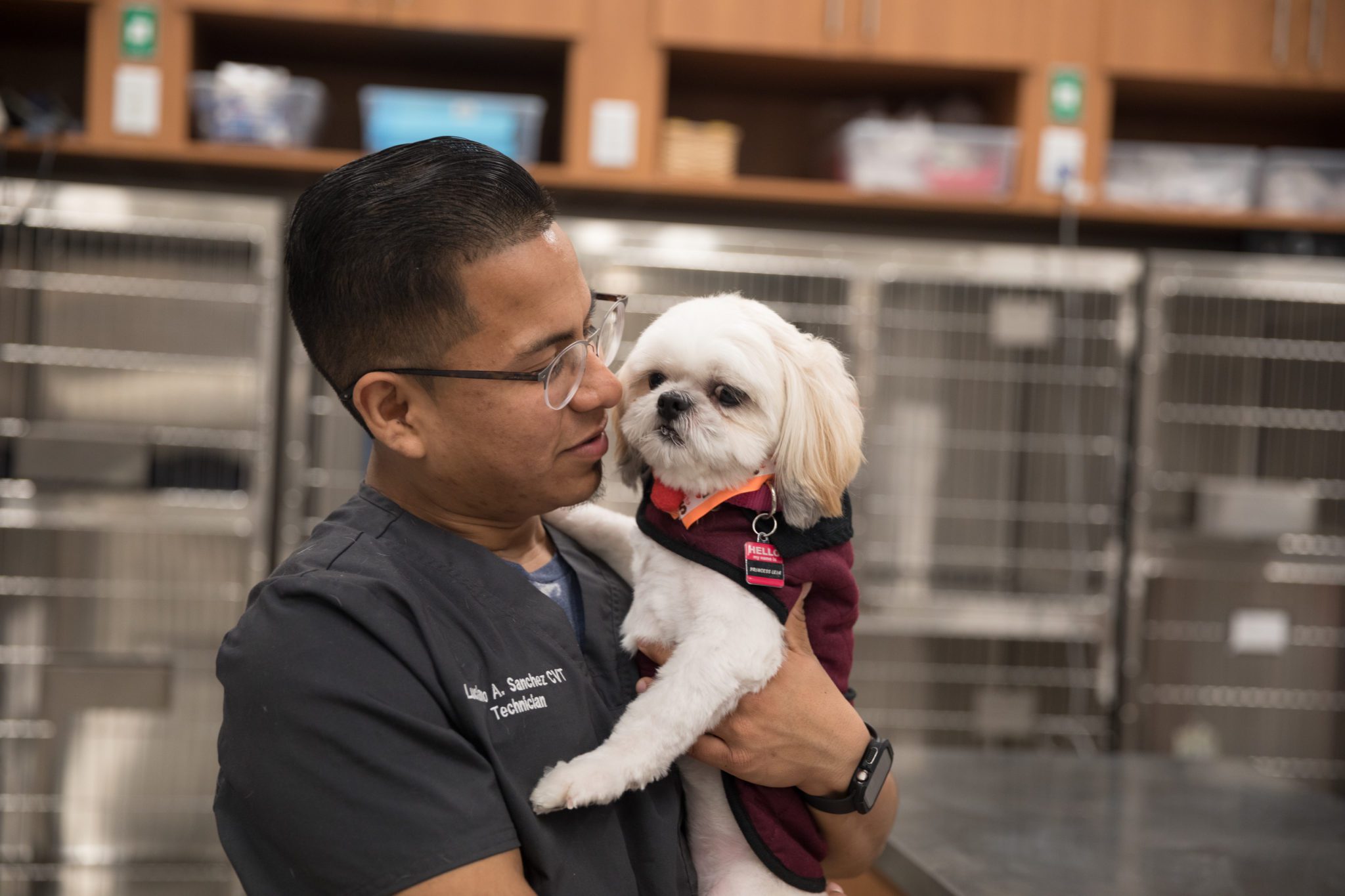
6 Tips When Caring for a Deaf Dog
Dr. Cheslie Price
Call & Speak with a doctor Open 24/7, Even Holidays!
Walk in today for:
Emergencies
Point-of-Care Ultrasound
Urgent Care
X-Rays
Diagnostics + Testing
End-of-Life Care
Surgery
Treatment + Hospitalization
Do you have a deaf dog, or are you thinking of adopting one? Are you inexperienced with caring for deaf dogs and looking for some information to help you get started? If this sounds like you, then you’ve come to the right place!
Tips to Follow When Caring for a Deaf Dog
It’s important to know how to care for your dog with this condition. Whether your dog is newly deaf as a result of illness, injury, or aging or you have adopted a dog who has been deaf from birth, these tips should give you the framework you need to provide the proper care for your pet.
Listed below are 6 tips to help you take care of your deaf dog:
1. Tag Your Dog
If your dog is completely deaf, it can be beneficial to have a custom tag made for him that states “I am deaf.” This way, anyone who finds your dog will know what to expect. You may also want to get a custom leash sleeve or vest that states the same, for the benefit of anyone you might encounter when walking your pet.
The more information you can provide to others about your dog’s needs, the better experience he will have. If anyone else needs to care for or interact with your pet, it is important to set up them up for success by providing realistic expectations.
2. Use Hand Signals
Your dog will not be able to hear you give him commands, so it’s important to teach him hand signals for effective communication. The proper hand signals can help your dog learn any commands a hearing dog might be able to perform.
Try to choose hand signals that are not commonly associated with other actions or activities to avoid any confusion. For example, a thumbs-up sign may be given in other contexts aside from just interacting with your dog, so choose something less likely to come up in everyday life instead.
3. Pay Attention
Since your dog won’t be able to listen for danger cues in his environment, you’ll need to do this for him. If you’re walking your dog and hear a nearby dog barking or growling aggressively, for example, you will need to get your dog out of the situation quickly rather than relying on him to do so on his own.
You’ll also need to pay more attention to your pet around the house to keep them out of trouble. Your dog probably won’t make a lot of noise, so you’ll need to know where he is and what he’s doing at any given time. A bell on the collar can often help.
4. Give Your Dog Smells
Give your dog plenty of interesting and unique items to smell in and around your home. When walking your dog, take time to let him sniff as much as he wants to in the environment as long as there are no nearby dangers or toxins. This will help create positive experiences for your pet. Since your dog cannot hear, he will rely greatly on his sense of smell. Keep this in mind when providing enriching activities for your pet to enjoy.
5. Monitor Closely Around Other Dogs
Other dogs may not realize your dog can’t hear them, so they may lose some of their communication capabilities. Although dogs communicate far more with their body language and expression rather than with barks and whines, your dog may still be at a disadvantage around hearing dogs.
It is essential to monitor your pet closely around other dogs to prevent fights from occurring. If you happen to take your dog to a dog park, consider going when there are fewer people and dogs present to help keep your pet safe.
6. Don’t Startle Them
Although it’s likely impossible to avoid startling your dog ever, try to prevent this situation from occurring as much as you can. Make sure your dog sees you when you enter a room or try to make contact, and consider giving him some other sign that you’re nearby if he isn’t paying attention—like tossing a favorite toy.
If your dog is asleep, avoid approaching and touching him suddenly without warning. This may startle him enough to become defensive or aggressive, even for a brief moment. Understand that you may need to give your deaf dog more space than a hearing dog might require.
Contact VEG for More Tips on Caring for a Deaf Dog
Caring for a deaf dog is not difficult, but you will need to make some adjustments in your life and your household. You may also need to adjust what you expect from your dog as he may not behave the same as a hearing dog would.
If you have any further questions or concerns about caring for your deaf dog or about your dog’s health and wellness in general, contact VEG by calling one of our locations. We have locations all over the country that are open 24 hours a day, 7 days a week. Our compassionate veterinarians can give you specific guidance for your individual pet’s needs and help provide the right care for your dog.

